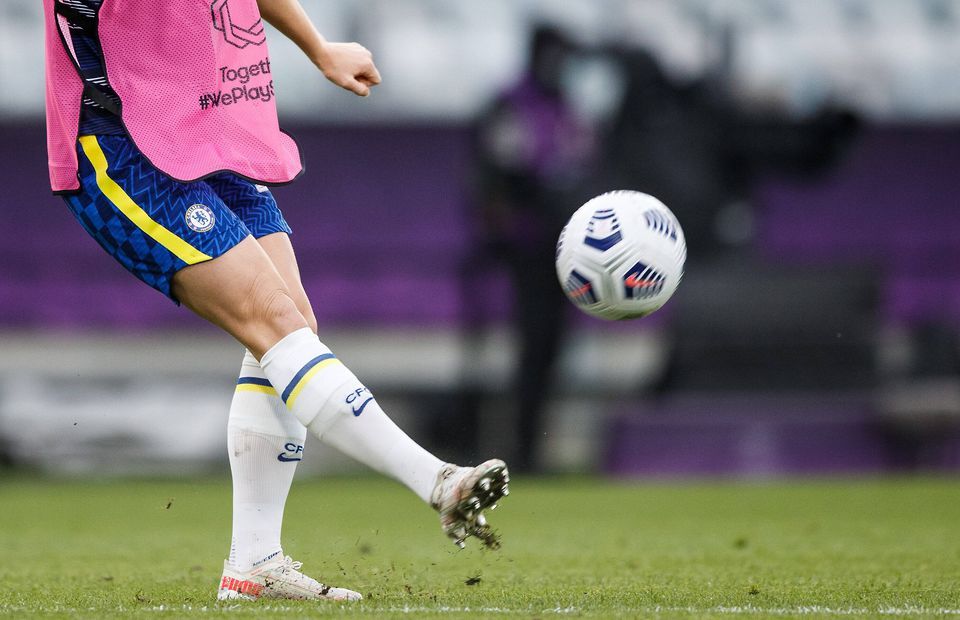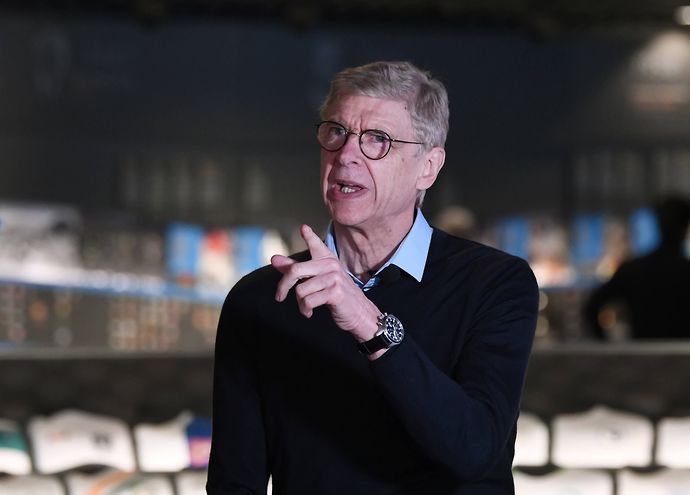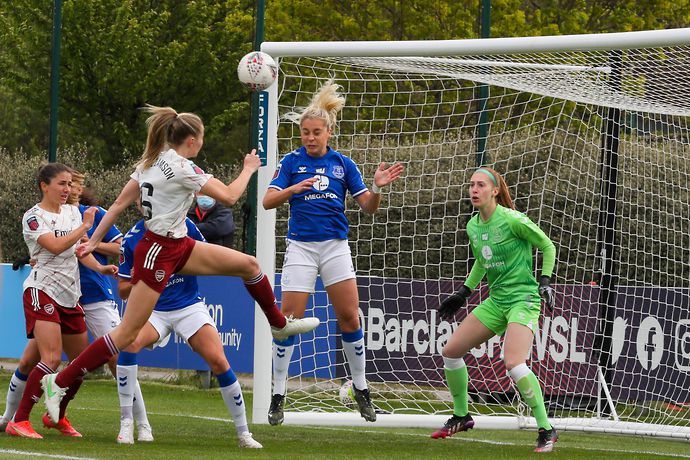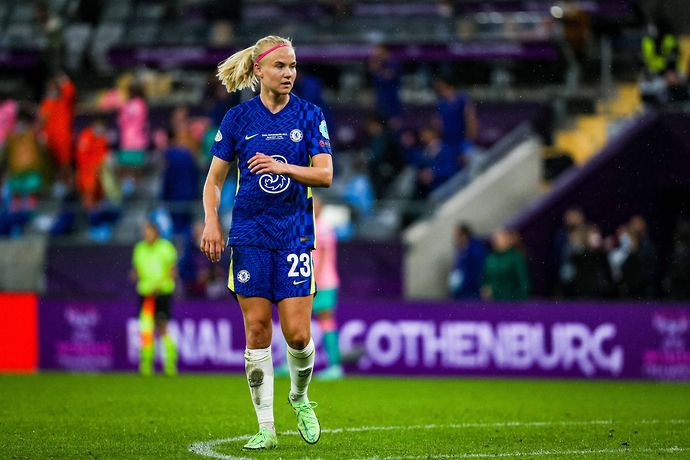It has been just over a week since the Women’s Super League came to a close, but the transfer market has already produced some surprise announcements.Bristol City’s star striker Ebony Salmon is on her way to NWSL expansion outfit Racing Louisville, whilst Emma Hayes’ WSL winning side have added Netherlands defender Aniek Nouwen to their squad.So what is in store for this summer’s transfer market, and what happens behind the scenes to make deals happen?GiveMeSport Women spoke to agent and founder of Next Gen Sport Solutions, Reece Land, to find out what it’s like being an agent in women’s football, how the transfer market has changed since he first entered the industry, and what problems still exist within the infrastructure of the women’s game.“It’s a strange one in women’s football,” Land says. “In men’s football, it [the transfer window] gradually gets busy from February as clubs start to plan for next season. In women’s football, we wait until the season’s finished and it’s like ‘season’s finished, go!’”
Land is confident this summer will be a good one for women’s football in England: “I think it will be the best transfer window that women’s football has ever seen, mainly because of the broadcasting rights from Sky Sports.
“Everyone always looks to the Super League as the flagship,” he continues. “Because it’s got the Premier League attached to it. You play for Aston Villa, Chelsea, Man United, Arsenal – massive brands. The broadcasting rights and the media exposure will just enhance that massively.”
Land, 25, has been in the football management industry for five years. It all started with a chance meeting with former Arsenal manager Arsène Wenger at an under-21s match at the club’s training ground.
At the time, Land was still playing football at a high level himself. He jokes that he approached the legendary Arsenal figure in the hope of a transfer for himself to the club.
“The only thing I remember what he said is ‘that will be the next big thing’, and he pointed towards the Arsenal women’s team who were training on the far side of the ground.
“Driving back to Leeds, I made the decision to go into women’s football and I stepped away from playing football. Now we’re the number one sports management company in women’s football.”
So what exactly does an agent’s job involve?
Agents don't have the best reputation, a fact Land is all too aware of: “We are seen like the mafia, like these underground gangsters. It makes me laugh but it is so frustrating.”
But the young businessman has created a three method principle for his sports management company to live by, which puts his clients first. “We aim to promote, protect and enhance,” he states.
The promotion aspect of Next Gen’s method speaks for itself. They showcase the talent of their players for others to see so they can push forward their careers.
Perhaps, the most important element is the protection Land believes his company offers.
“We protect on the welfare side, contractually, legally, financially. If anything goes wrong in their contract, goes to a court of law, goes to a tribunal – we need to make sure that we’re in the strongest position to challenge.”
Social media is another area where Land protects his players, taking charge of a number of their Twitter accounts.
“They now recognise in three months' time when it [WSL] goes on Sky Sports, they are going to come under scrutiny. If they don’t see it, it doesn’t affect them.”
The final principle of Land’s method is to enhance, as he explains: “My job is to make sure that our players are on the best contracts, playing at the highest possible level and maximising their potential. If none of my players are maximising their potential – I have failed as an agent.”
Enhancing players’ careers is one thing but protecting them from the powers that be in football is another.
“Football has always been a cut-throat business,” Land says. The agent has experienced first-hand how clubs often fall short on player welfare promises.
“If you’ve got a 12-month contract and six months in you’ve been a bit out of form – okay, you’re off, we’re going to bring someone better in. That’s as brutal as football is. What about the player welfare side? Who is looking after the player now?”
The 25-year-old has consoled some of his clients over the past few weeks after clubs have told them they will not be renewing their contract come the end of the season.
It’s easy to see how these career-defining decisions can have a huge impact on a footballer's mental health. Land reveals one of his players recently told him that they wanted to “end it all.”
“Players should never get to the point where they’re phoning their agents saying I want to end it all. No one should get to that point,” he says. “Forget they are footballers, they’re people, they’re employees of your organisation. You have to look after them.”
It isn’t just the support systems offered by clubs that remains a problem – the nature of player contracts is something that must change, according to Land.
There’s so much correlation between business and football, and sport in general, and it’s such a lonely environment.
“Especially in women’s football,” he adds. “Because 90 percent of them are on one-year contracts. The insecurity of that is you are always playing for next season.
“It is very rare in women’s football that you can go and enjoy your season knowing you’ve still got two seasons left on your contract.
“When you look at the mental pressure, the physical pressure – players are wanting to rush back from injuries because they have eight games left of the season to try and earn that contract for next season."
So why is it that short term contracts are so common in the women’s game?
Land himself doesn’t have the exact answer but he can speculate: “Is it because clubs are signing players they’re unsure of? Is it because of finances – they don’t know in 12 months’ time if the women’s team could go bust? Is it because they’re scared that the men’s team will pull funding?”
The Next Gen founder believes longer-term contracts would benefit all parties involved.
“When clubs give out two or three-year contracts to players, they get a better player. The player can go and relax. The player can move from London to Manchester and settle, rather than living out of a suitcase for eight months.”
And it could help clubs financially too. Having players on one-year contracts doesn’t make sense when you think of the transfer fees involved. Why would a buying club pay a transfer fee or a release clause when the player’s contract is up in a few months?
Transfer rumours are commonplace in discussion surrounding men’s football, but less so in women’s.
It’s not often that we hear how much money a club has signed a player for. Pernille Harder’s move to Chelsea last summer was described as a world record transfer but the exact fee is unknown, reported to be in excess of £200,000.
“The press have to cover it,” Land says, “Deadline day is the most overrated, exaggerated day ever. People think all the players are all sat with their phones and agents have got helicopters in their garden.
“It’s like Christmas day but I quite like that – women’s football needs it, it needs that narrative.
Let women’s football deadline day have its own flagship show and watch the numbers go up, watch how many people will start to go and watch women’s football.
“We need to see the growth on a commercial basis. When everything is undisclosed, or on one-year contracts and players are moving on free transfers, we can’t see much growth because the numbers aren’t there to see.”
Since the Women’s World Cup in France in 2019, women’s football has seen great amounts of growth and media exposure.
There have been star players coming across from Europe and the United States to play in the WSL, and the league’s record-breaking broadcast deal with Sky Sports and BBC will hopefully encourage this to continue and benefit the game as a whole in the UK.
But there are still big problems in women’s football.
Players and managers want to feel valued and supported, and women’s football has room to gain more momentum. Poor player care, short-term contracts and a general lack of buzz around transfers are areas where the game and coverage can improve massively.























